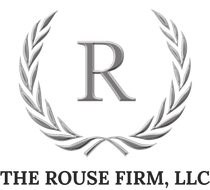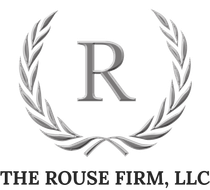Quality Legal Services You Can Rely On
Whether defending your rights in court or keeping you out of court,
we take a strong lead in protecting your interests.
SKILLED
TRUSTED
CARING
The Rouse Firm, LLC
When you need client-centric legal service, where do you turn? When you work with The Rouse Firm, LLC, you can take confidence in knowing that a trusted legal team has your back.
Based in Stone Mountain but serving clients throughout the United States, The Rouse Firm, LLC provides customized legal and consulting services. We understand that no two matters look alike, so we make a point of adapting our approach based on our valued clients. That being said, all are treated with the respect they deserve, regardless of the details surrounding their legal or non-legal concerns.
At The Rouse Firm, LLC, we are all about teamwork. We provide a collaborative approach, which thrives due to our commitment to meeting regularly to discuss cases and the strategies we intend to employ. This focus on collaboration — combined with a collective background spanning over three decades — allows us to provide the targeted, effective service our clients require.
Our office is conveniently situated inside the perimeter and is easily accessible from any location in Metropolitan Atlanta.
There's no substitute for strong representation when you're facing a high-stakes legal situation. Don't waste this opportunity to achieve the positive resolution you deserve. With The Rouse Firm, LLC on your side, you will be equipped to achieve a desired outcome for your case, no matter how complicated or hopeless it may seem at the moment. Contact us today to learn more about our practice areas and our unique legal approach.







